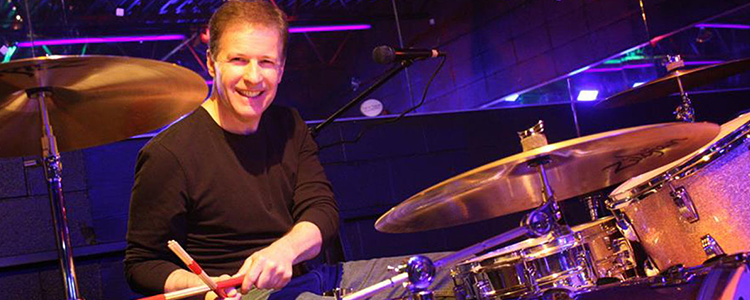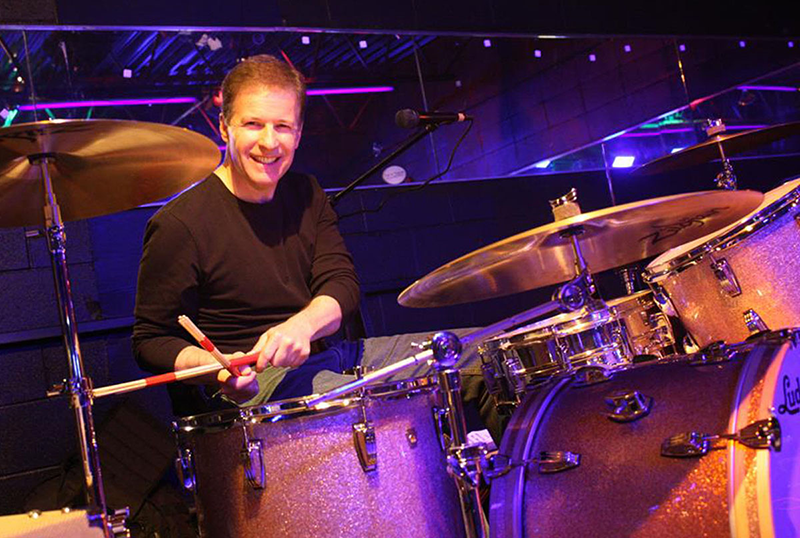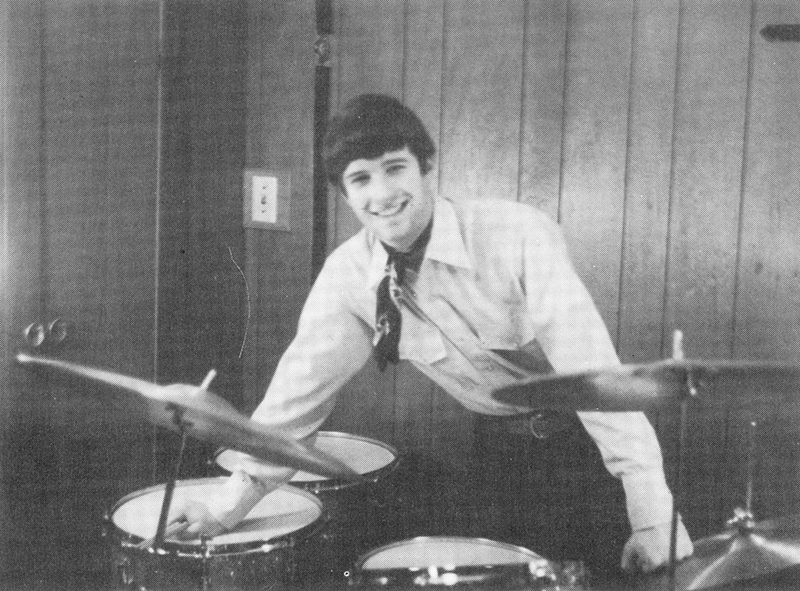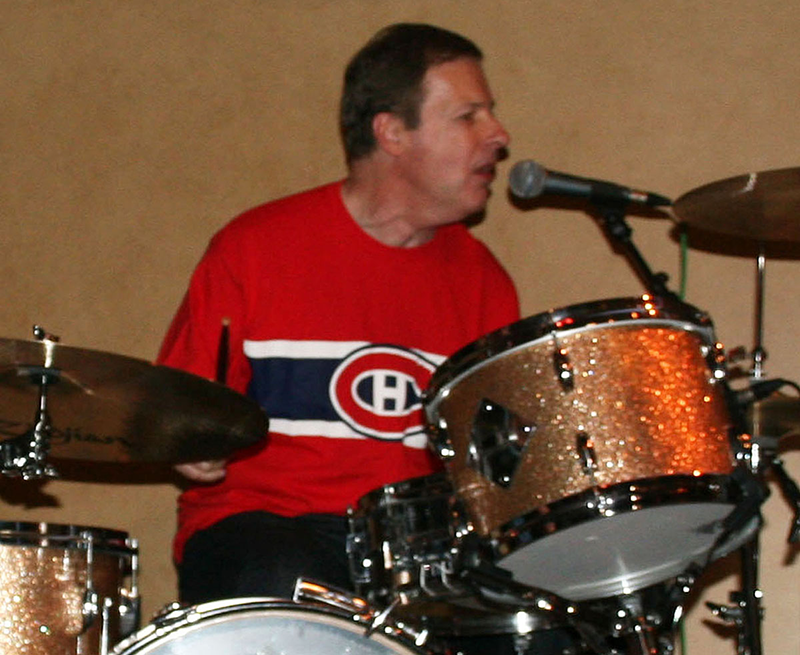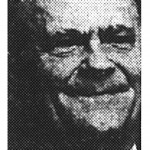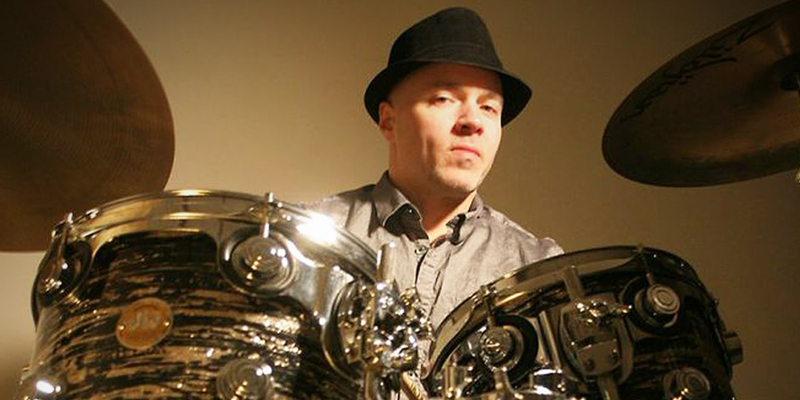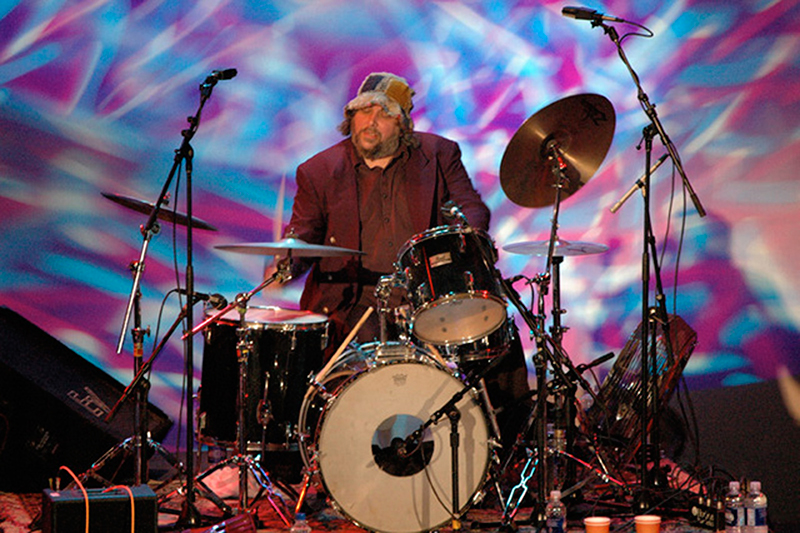Growing Up In The Shadow of Joe Morello: Part Two - Recollections of Joe Sefcik by former students Dave Barsalou, Greg Caputo, Jim Cote, Tim Griffin, Ron Hurst, and Chet Pasek
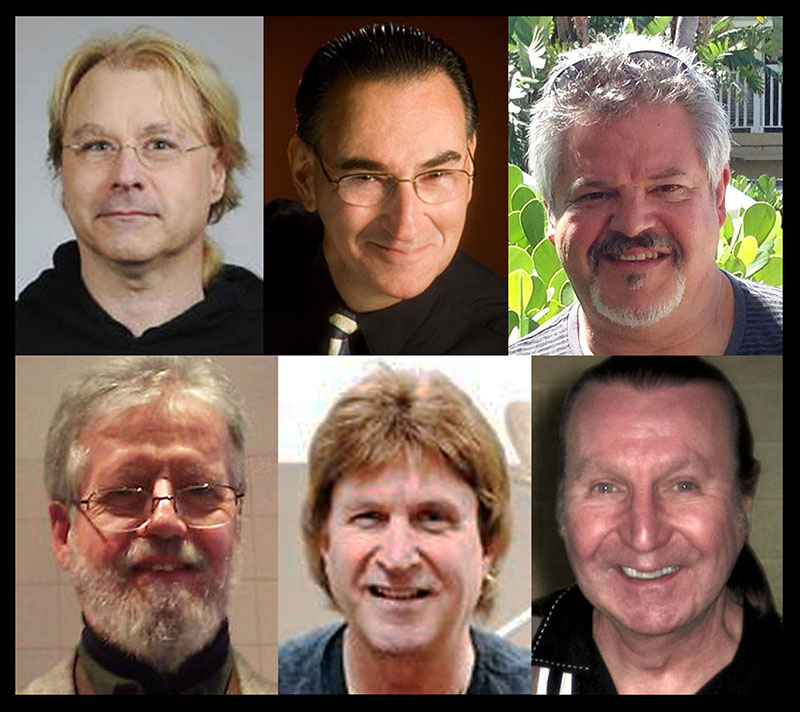
David Barsalou
My very first lesson with Joe Sefcik was both frightening and exhilarating at the same time. For many years, Joe’s reputation as a seriously demanding teacher preceded him. As Joe Morello’s first drum teacher, Sefcik had achieved mythical status in the drumming community. Every serious drummer wanted to study with him. In fact, Joe was so busy, a large number of aspiring students were placed on his waiting list. Joe was teaching all day long six days a week, while gigging most every night.
When opening the door to Joe Sefcik’s studio, I was instantly hit by the strong smell of cigar smoke. With my first lesson, Joe wanted to build upon what I had already learned… So he had me bring all the method books used with my first teacher Johnny Beger. Joe Morello and Beger grew up in the town, and had been close friends since childhood. Joe Sefcik knew Johnny used some of the same books, and didn’t want me re-hashing the same material. So the following week I had some brand new books to keep myself occupied. These included Stick Control by George Lawrence Stone, Finger Control by Charley Wilcoxon. and Advanced Techniques For The Modern Drummer by Jim Chapin. Sefcik had me locked into an intensive practice regimen which led to college and a career in Education and the Arts.
I spent four years with Joe learning how to be patient, practicing slowly at first, and building up speed gradually. In fact, Joe had an old sign hanging on the wall which said, “The Hurrier I Go – The Behinder I Get “. It was a very sad day when I learned that Joe Sefcik passed away suddenly, at the age of 72.
Soon after Joe died, I continued my studies with, U.S. Air Force drummer, Gerry Bartiromo; And after to New York City to study with the great Joe Cusatis for two years. Afterwards, I also spent a richly productive four years learning from drummer / educator, Ed Soph.
Gregory Caputo
My Dad was a fellow musician and life-long friend of Joe Morello. He played Joe's records during my entire adolescence. I simply grew up listening to one of the greatest drummers in music history. I contacted Joe Morello in regards to drum lessons. At that time, Joe was a member of The Dave Brubeck Quartet. Because of his intense touring schedule, Morello advised me to study with Joe Sefcik.
Sefcik was a highly dedicated teacher. One had to be self-motivated and serious just to study with him. His students were his family… Sefcik knew immediately if you were bluffing your lesson. He would ask,”Why did you not practice?" What did I not make clear to you? The pressure was always there to be the very best you could be.
Joe would always make sure that you understood the concepts of your lesson. I can clearly remember him requiring me to write the counts in over all notes of my lesson before I left his studio. He would check to see if I did this correctly before I was dismissed. Each lesson had to be played at three different height levels of 18, 9 and 4 inches for dynamics and stick control.
Thus what I learned from Joe Sefcik was discipline and control of the hands. Everything was played slowly with a focus on ease and fluidity of movement. This instilled a good time pulse and feel into my drumming.
After my lesson one day, Joe said, "Look at me, Gregory this is it! I have done all I can for you. You need to go see Joe Morello now."
This was very sad to me because I loved the man. I never respected him more than at that moment. It takes a giant of man with a lot of morality to do that. I traveled with Joe Sefcik to New Jersey for a drum lesson. Joe sat in the passenger seat and practiced all the way down on a pad! (three hours each way). My Studies with Joe Sefcik prepared me for the years ahead as a student of Joe Morello. Studying with Morello was humbling to say the least. He was a genius of improvisation with boundless technique.
I always was in awe of his command of the drum set. His exercises were endless. He would not teach licks. Morello's philosophy was to give you the skill to play what you heard in your head. He used to say, “The more letters you have the more words you can spell." Morello gave me the facility to play what I feel in my soul. I carry both Joe’s with me in all of my performances.
Jim Cote
I have many memories of studying with Joe Sefcik; those were great times. There was hardly ever a lesson where Sefcik didn't mention Joe Morello. As always you were expected to be at all your lessons on time, and had to pay for any that you missed… He always said, “Morello never missed any.”
Sefcik also mentioned how Morello would always double the amount of practice time on any given exercises. He would add, or move accents around to make it more challenging and creative. Having had a student like Joe Morello, Sefcik knew that anything was possible with the proper dedication and will to learn.
Joe did expect a lot from his students, and had much success with many of them. I only wish there was more time, and had been a bit older so I could've grasped more of the Moeller thing Joe was teaching. Sadly, Joe Sefcik passed the summer of my sophomore year in high school. Joe got me into my first band after only three years of lessons, Unfortunately, he didn't live to see some of my other accomplishments.
Studying with Joe and knowing the legacy of Morello, made most of Joe Sefcik’s students set their goals much higher. I miss Joe, and am happy and thankful to have been one of his students.
Tim Griffin
I was first introduced to Joe Sefcik by my father, Larry Griffin. Larry was a well- respected singer and dancer in the Western Massachusetts area. Many times when he sang, Joe was the drummer that my father performed with. He always liked how well Joe played the drums behind his dancing.
I also started out very young as a tap dancer. My father's dancing was a great influence on me… His nickname was "old smoothie"… Dad’s rhythm was always effortless. One time I showed up at my Pee Wee league baseball game in tap shoes. Needless to say, there was some laughter, ridicule, and embarrassment. I soon decided it was time for a change.
In sixth grade I began playing drums at my elementary school. It was much cooler than tap dancing. At 14 years old, I was lucky to begin playing out professionally in some great rhythm and blues, and rock and roll halls. At this point in music history, most national recording stars did not have the budget to bring complete music groups with them. So we were lucky enough to be the backup band for many well-known recording stars. It was then that I started studying drums with Joe Sefcik. At the time, The Dave Brubeck Quartet were at their peak.
Joe invited me to go with to a Brubeck concert with him at the Springfield MA Symphony Hall. The concert was truly memorable. There was only one microphone on the stage 4 feet away from Paul Desmond. The group played and was balanced like a symphony orchestra. Joe Morello had played most of the night lightly touching his bass drum, but had it tuned so perfectly to the room, that when he hit it hard, it had an architectural room resonance. It was also the first time I met Morello. We stayed until after the concert was over, and went backstage to help Joe pack up his drums. Before we packed up, Morello let me sit behind his set and play them. I was scared to death. We stayed in touch over the years, but with some large gaps in time. Every time I have a conversation with anyone about Joe Sefcik, I remember two of the most inspiring sentences and facial expressions that somehow permanently affected me way down deep. If you knew Joe Sefcik, you can imagine the look on his face when he said these things:
- He would stare you in the eyes, pick up his right hand (with cigar), and say “You Gotta Get THE SOUND”, And you knew exactly what he meant. Joe made it clear, it was how you played with feeling that was more important than what you play.
- He always enjoyed our lessons if I played it more relaxed. One time Joe said my favorite expression… I will always remember him saying, “If You Ain’t Dancin’, No One Else Is.”
Ron Hurst
Joe "Drums" Sefcik - On the international performance stage his name may not have been a household word, but in the teaching arena he was a giant. A taskmaster and disciplinarian who would expect nothing less from his students then he would give as a teacher - which was 100%. Perhaps Joe's greatest musical achievement was being the first instructor of the late and great Joe Morello. As his reputation as an extraordinary drum teacher spread throughout the Northeast, people young and old alike were clamoring to study with him. With his time being limited, he wouldn't think twice about washing somebody out if he felt they weren't trying their best and wasting his time. Through shouting & obvious intolerance for people he felt weren't giving their all, he got amazing results. I recall one time when a student before me hadn't practiced as much as Joe thought he should have. He grabbed his books and threw them out the second-floor window onto the street. As he walked back toward the student rubbing his hands he said "he hoped a car was going by and they landed on his windshield" then he said "at least he knows the driver would be getting more out of the books than the student was."
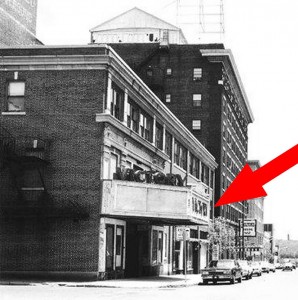
My first meeting with Joe in 1962 was absolutely intimidating. I recall standing in the studio above the Victory Theater with my mother when he told me that if I wanted to learn to drum he would teach me, however if I wanted to learn Rock N’ Roll teach myself. Now one has to remember at that time period, Rock 'N’ Roll was looked upon as a fad and a trend that was going to go away and Joe was a very traditional instructor. Fortunately a lot of that thinking fell by the wayside with the onset of the Fab Four and the rest of the British invasion.
I too was not immune to Joe's wrath at times when he thought I was slacking. I recall one occasion when Joe apparently felt I wasn't coming along fast enough with my footwork to which he suggested I join a drum Corps and March in the St. Patrick's Day parade - that way when he saw me marching he knew I was doing something productive with my feet. I also recall the time when Joe apparently felt I wasn't rebounding my left hand high enough to which he grabbed my wrist pulling my stick up and knocking a 1 inch red hot ash off the tip of his cigar onto his tie, burning a hole in it.
The moral to the story being "had I practiced as I should have I would not have ruined his tie."
These stories that I'm sharing are meant to be humorous and hold very WARM memories (pardon the pun). I will always be indebted and grateful to Joe for taking me under his wing as a student. All the things he taught me years ago still hold true to this very day. Throughout my life and my own musical journey, which includes studying with other incredible teachers around the country, I can't tell you how many times I've thought "where have I heard this before ? “ as they share their advice and brilliant techniques. To sum it all up, Joe Sefcik will always be my primary mentor and is missed to this day, but what a wonderful legacy he left behind. A legacy of superb drummers who had the privilege of studying with him - and you all know who you are.
Chet Pasek
I started studying with Joe Sefcik at 12 yrs old. He set all the rules right away. If you didn't listen, he would let you know immediately. I remember seeing a few students come out of lessons crying. I pretty much listened to everything he said to avoid the consequences. Sefcik was always getting new information from his former students and acquaintances like Joe Morello and Joe Raiche…This included Morello’s further interpretations of the Gladstone and Moeller methods.
Joe Sefcik first taught Morello in the cellar of an old theater. Morello once said, he could hear rats chewing on things during that time. Apparently, it never really bothered Morello; he never missed a lesson. I knew Sefcik because my grandmother and he were cousins. My Aunt also told me Joe Sefcik was offered a teaching job at The Julliard School In NYC, but turned it down. His close friend, Morris Goldenberg (also of Holyoke, Mass.) took the job instead. One time, Joe Morello and Sefcik visited Mo Goldenberg at his home… Spending all day practicing the rudiments; each time playing them faster.
Eventually, Sefcik and Goldenberg finally conceded to Morello who was completely relaxed, and hadn’t broken a sweat. Later on I studied with Joe Morello – Joe was always thankful for the time he got to spend with Joe Sefcik.


